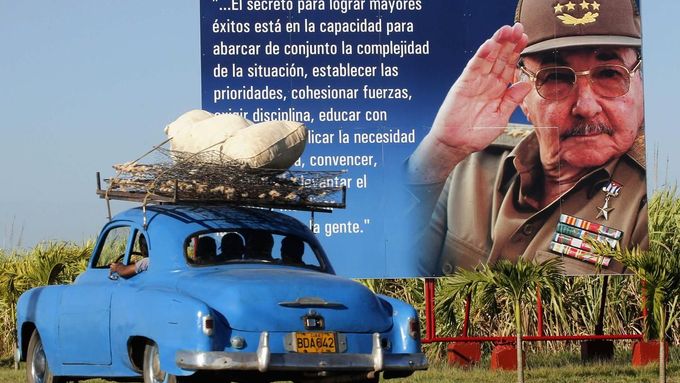Havana/Brussels - The European Union (EU) has decided to improve trade relations with Cuba, in spite of the Havana regime's repressions against dissidents and restrictions on freedom of speech.
EU foreign ministers have agreed that a dialogue will be more effective than imposing sanctions and criticizing human rights abuses. This approach will "support Cuba's market reforms and its transition to a more open economy," said EU foreign policy chief Catherine Ashton.
This development is a definitive defeat of the Czech Republic's hardline position on Cuba, maintained by the previous Czech cabinets of Mirek Topolanek from 2006 to 2009 and, to a lesser degree, Petr Necas from 2010 to 2013.
Ukrainian politicians "not in charge" of situation
Czechs could destroy Assad's chemical arms: Minister
For a long time, the Czech Republic and Poland were the EU's biggest hawks on Cuba, conditioning any economic aid to the Caribbean nation on the release of political prisoners and other democratic reforms.
But the new cabinet of Prime Minister Bohuslav Sobotka (Social Democrats) agrees with the EU's moderate policy. "Talks with Cuba are acceptable for the Czech Republic," said new Foreign Minister Lubomir Zoralek, adding that Prague will still put emphasis on the problem of human rights in Cuba.
In the past years, Czech diplomats have repeatedly clashed with their Spanish counterparts over the issue of Cuba, with Madrid preferring a less aggressive approach.
"The Czech side saw the situation in Cuba from their own point of view, through the prism of their experience from the communist regime era. We argued that Cuba is different, that confrontation will not work there," a Spanish diplomat recently told Aktualne.cz.
Czech human rights NGO People in Need is very active in Cuba, providing support to anti-government dissidents. Its presence has even prompted the Havana regime to look with suspicion on every incoming Czech national.
The EU implemented economic sanctions against Cuba in 2003, in response to a wave of repressions against dissidents. But the embargo lasted only five years. Since 2008, Cuba has received EUR 80 million a year in EU aid.
The bloc is Cuba's second biggest trading partner, after its Latin American ally Venezuela.










